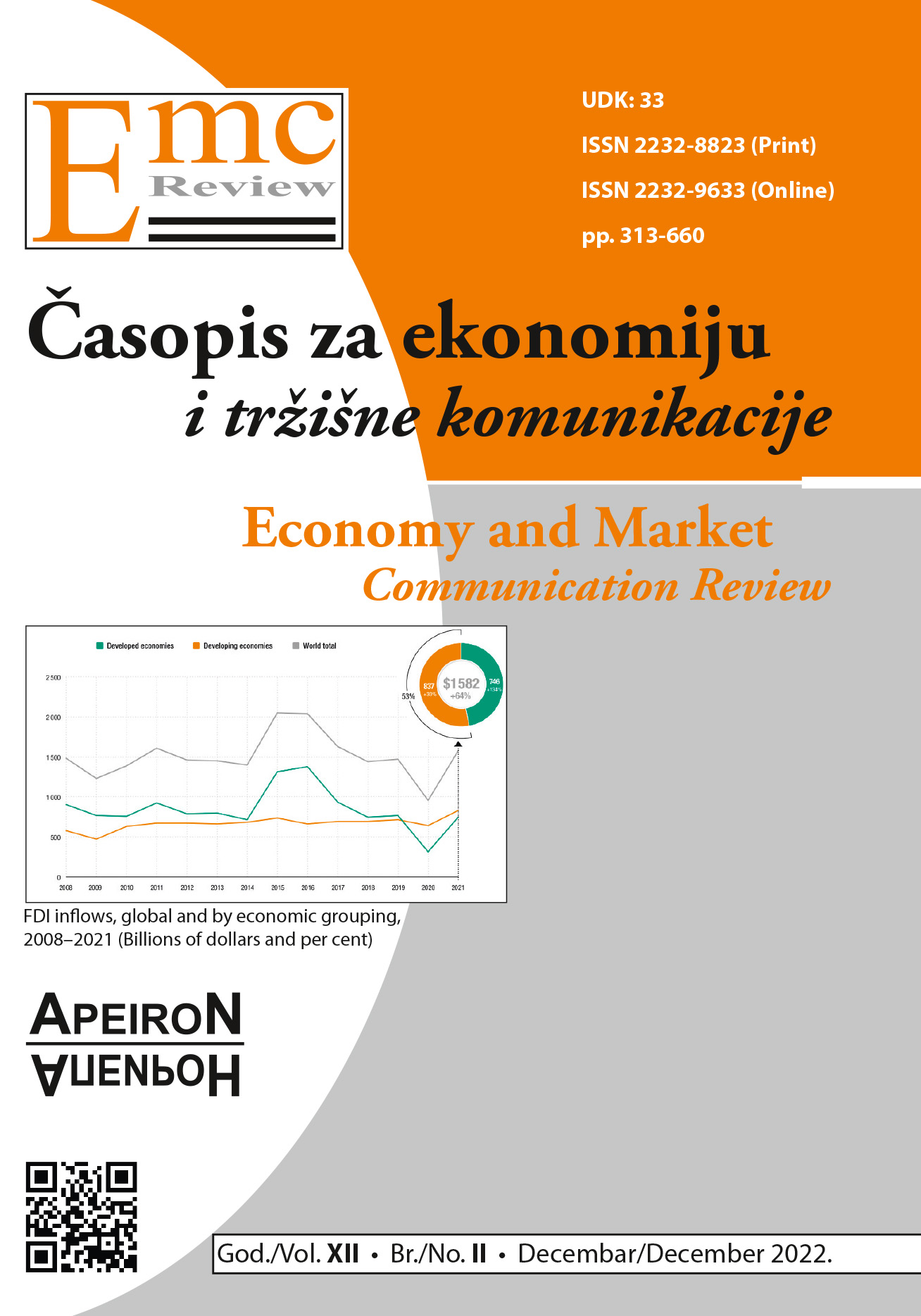LEADERSHIP STYLE AND VARIABLES OF INFLUENCE ON GROUP DECISION-MAKING IN COMPANIES
DOI:
https://doi.org/10.7251/EMC2202421BAbstract
Eurofound data shows that only 29% of employees in the European Union, Norway and the United Kingdom participate in the work of their organizations at a high level of involvement: they participate in making decisions that have an impact on the wider organization, individually or collectively, they show personal initiative in carrying out daily tasks. At a time when many companies are facing serious crises (inflation, problems in the functioning of supply chains, labor migration, threats of energy crises and many others), the question of how to make companies as flexible as possible to challenges, whether external or internal, arises as a necessity. This issue often requires the cooperation of experts from different areas of the company to solve complex problems. Likert’s participative leadership style encourages employee participation in group decision-making and joint problem solving. Encouraging employee engagement is a major challenge for organizations. This implies shaping a specific organizational culture that is participative, an organizational climate and a managerial style of behavior that is also participative. For this purpose, a questionnaire was created on the basis of which a sample of 125 respondents in companies in the Republic of Croatia was collected (KMO=.892, p<.05, α=0.894). The sample includes companies of different sizes, as well as respondents of different educational levels, age and gender. The attitudes and perceptions of employees about group decision-making in companies, teamwork, communication, motivation, goals, supervision and influence of employees were examined. Answers to two research questions were obtained and two starting hypotheses were confirmed. The results of the processing of hypothesis H1 (ρ=.572, n= 125, p<.05) suggest that a statistically significant connection was established between the variable “we decide on goals as a group” and the variable “my manager asks for my ideas and asks for my consent”. Results processing of hypothesis H2 (ρ=.685, n=164, p<.05) suggest that a significant connection was established between the variable “we decide on goals as a group” and the variable “my company encourages teamwork and cooperation”. The regression analysis obtained predictors variables that have an impact on group decision-making in companies The proposed model, which statistically significantly predicts 51.1% of the criterion variance (R2 =.527, R adj=.511), defines four predictor variables (freedom to decide within the scope of one’s powers, my company encourages cooperation and teamwork, I have influence on my manager, we regularly analyze the achievement of goals) which have a statistically significant influence on the criterion variable (“we decide on goals as a group”). These findings have practical implications for menad concerns in companies when shaping a participative organizational culture and shaping a participative leadership style.
